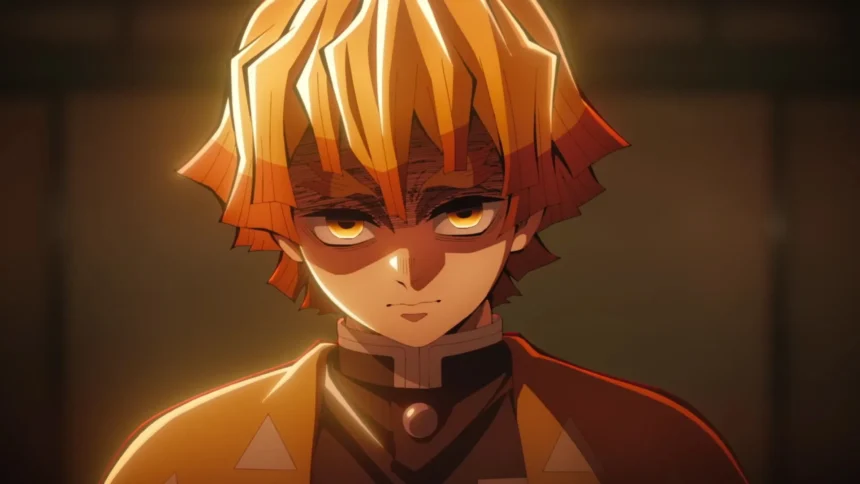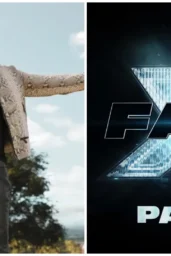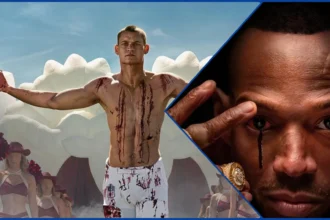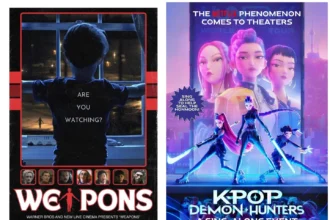The Weekend the Illusion Shattered
Theatrical box office is a brutal mirror—it reflects the highs with blinding clarity and the lows with unforgiving sharpness. This weekend, Demon Slayer: Infinity Castle provided both in one stroke. After a thunderous $70.6 million opening, the film plunged 75% to $17.3 million, still enough to hold the #1 spot. For anime, this isn't an anomaly—it's a ritual.
The Numbers Don't Lie
| Rank | Title | Weekend Gross | Drop | Theaters |
|---|---|---|---|---|
| 1 | Demon Slayer: Infinity Castle | $17.3M | -75% | 3,342 |
| 2 | HIM | $13.5M | N/A | 3,168 |
| 3 | The Conjuring: Last Rites | $13.0M | -42% | 3,413 |
Infinity Castle's collapse joins a lineage: Mugen Train fell 70% in 2021, Dragon Ball Super: Super Hero plummeted 78% in 2022. The pattern is undeniable—anime burns white-hot for an opening weekend, then vanishes.
Anime's Domestic Paradox
Here's the contradiction: audiences show up in droves, then disappear. It's as if anime has become the cinematic equivalent of a fireworks display—brilliant, unforgettable, but fleeting. Even with IMAX-enhanced spectacle and glowing reviews, Infinity Castle couldn't sustain momentum beyond its fanbase.
Yet globally, it's another story. At $555 million worldwide, anime proves its durability. In Asia, Europe, and Latin America, the engagement continues week after week. Domestic audiences treat anime like a one-night stand. Internationally, it's a long-term relationship.
Counterprogramming's Broken Compass
If Infinity Castle's drop was predictable, the real tragedy was elsewhere. HIM opened with $13.5 million—hardly disastrous, but underwhelming given Jordan Peele's involvement. Horror has been the most consistent genre in recent years, yet this time audiences shrugged. Why? Because marketing never answered the fundamental question: why this horror movie, right now?
Then there's A Big Bold Beautiful Journey. Margot Robbie's first post-Barbie role, paired with Colin Farrell, should have been a safe draw. Instead, $3.5 million suggests audiences saw neither urgency nor identity. Barbenheimer wasn't just counterprogramming—it was cultural synchronicity. These films felt like calendar arithmetic.
Industry Wake-Up Call
The lesson is brutal but clear:
- Anime in America is event cinema, not sustained cinema. Shorter windows and premium formats may be the path forward.
- Counterprogramming requires cultural synergy, not desperation pairings. Barbenheimer worked because it wasn't engineered—it was inevitable.
- Star power is no longer currency. Margot Robbie and Jordan Peele can't sell films on reputation alone.
Looking Ahead
Next weekend, Paul Thomas Anderson's One Battle After Another and Renny Harlin's The Strangers: Chapter 2 will test whether audiences are seeking novelty or comfort food. But the shadow of this weekend lingers: anime's domestic ceiling, counterprogramming's misfires, and the creeping suspicion that Hollywood is still chasing formulas in a post-Barbenheimer landscape.
The Bottom Line
Anime's second-weekend collapse isn't failure—it's revelation. These films ignite like thunderstorms, then fade, leaving only the memory of brilliance. Counterprogramming, meanwhile, is an art Hollywood has forgotten how to practice. Theaters will survive, but only if studios stop mistaking hype for strategy.
What Do You Think?
- Should anime films embrace shorter theatrical windows in the U.S.?
- Can counterprogramming still work, or was Barbenheimer a one-off miracle?
- Has star power lost its meaning at the box office?
| Rank | Title | Weekend Gross | Domestic Gross | LW | Theaters |
|---|---|---|---|---|---|
| 1 | Demon Slayer: Infinity Castle | $17,300,000 | $104,730,000 | 1 | 3,342 |
| 2 | HIM | $13,500,000 | $13,500,000 | N/A | 3,168 |
| 3 | The Conjuring: Last Rites | $12,950,000 | $151,177,000 | 2 | 3,413 |
| 4 | Downton Abbey: The Grand Finale | $6,300,000 | $31,626,000 | 3 | 3,711 |
| 5 | The Long Walk | $6,300,000 | $22,719,000 | 4 | 2,845 |
| 6 | A Big Bold Beautiful Journey | $3,500,000 | $3,500,000 | N/A | 3,330 |
| 7 | The Senior | $2,773,021 | $2,773,021 | N/A | 2,405 |
| 8 | Toy Story | $1,400,000 | $198,409,534 | 5 | 2,340 |
| 9 | Sight & Sound Presents: Daniel LIVE | $1,384,408 | $1,600,727 | N/A | 933 |
| 10 | Weapons | $1,260,000 | $149,732,000 | 6 | 1,186 |
Sources: Box Office Mojo, industry analysis











